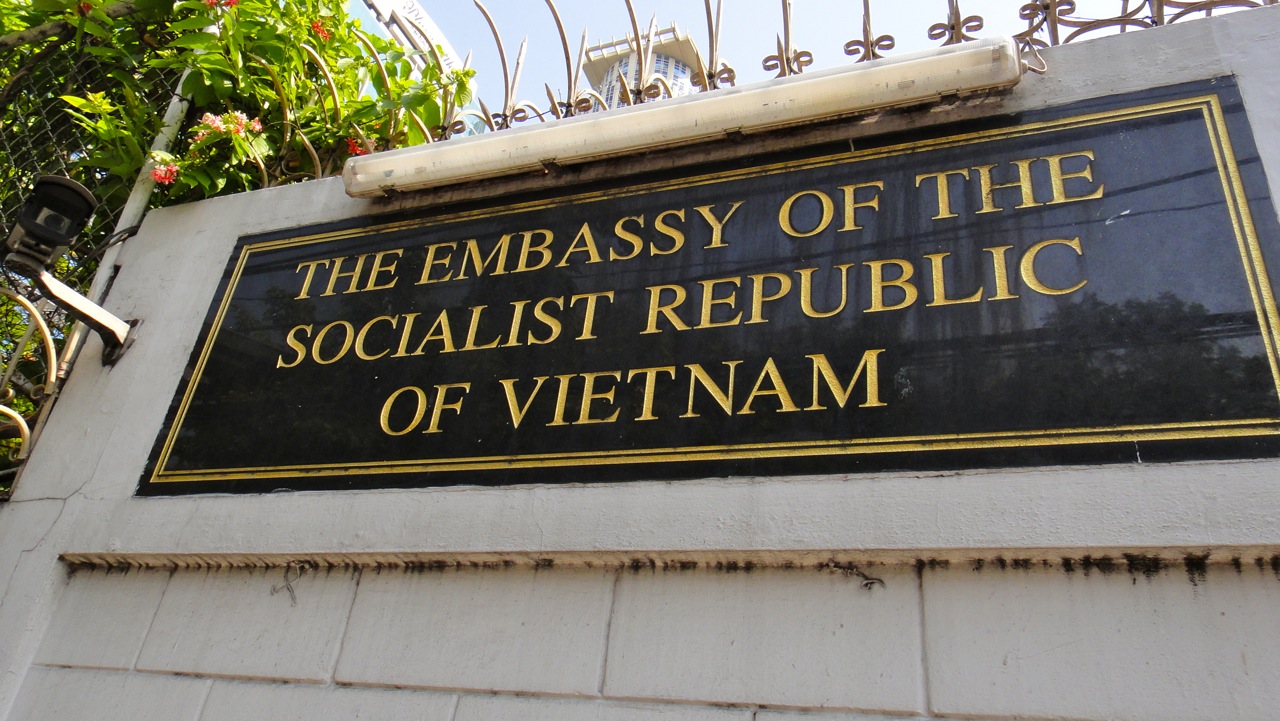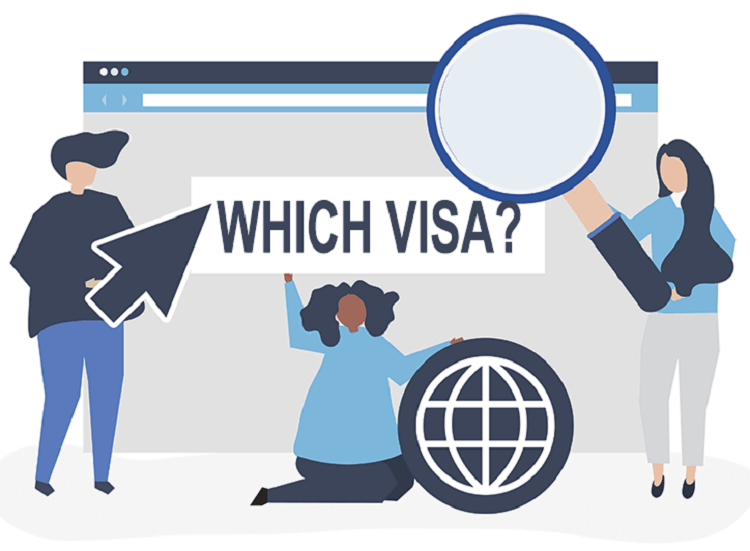
Photo: Collected
One of the methods to obtain a visa for entry and exit to any foreign country is visiting that country's embassy/consulates in person. That’s why it can be very beneficial to acquire knowledge related to them, from the definitions to the exact addresses that you can refer to. Without further ado, let us walk you through this handy article!
1. What are embassies and consulates?
Although they both belong to diplomatic missions of one country located in foreign countries, the main difference between embassies and consulates is that embassies are the major representative - headquarter in diplomatic, political, and economic affairs which are positioned in a capital city whereas consulates are smaller - branches and often follow the guide of embassies from other cities.
2. How do you know where to go for Vietnam visa applications?
Actually, in most cases, you can tell that Vietnam embassies and consulates serve the same purposes, namely they can give you detailed information and lead you through the visa grant process.
However, you should definitely check out the authority in charge via official websites first and opt for the places nearby where you live for your convenience.
*Extra tips: You can also contact embassies/consulates through phone number or email address before visiting to save time and money.
3. What to bring?
Please prepare documents in accordance with the guidance on the embassies/consulates’ websites. If you are not clear at any point, make sure to ask for help!
Generally, here are some documents required by any embassies/consulates:
* Extra tips: At embassies/consulates, you may have to attend a compulsory interview after submitting documents. Be ready and showcase positive and polite attitude.
4. List of Vietnam Embassies/Consulates worldwide
Feel free to check out the list here if you want to get consultations about Vietnam in general and visa applications in particular.
Now, we hope you are confident enough when it comes to Vietnam Embassies/Consulates, no more confusion and effort waste. Also, pay attention to our extra tips that maybe can help you to prepare better for your trip to Vietnam!
You can refer to our eVisa and Visa On Arrival (VOA) service for a quick and easy Vietnam visa applications!
If you want to know more about our services, please do not hesitate to contact us at:
Phone: +84.28.6685.1315
Hotline: +84.357.522.522
Email: sales@vietnam-immi.org

Photo: Collected
E-visa and Visa On Arrival are the two convenient methods for foreigners to get a Vietnam Visa without the need to visit Embassies/Consulates in person.
In case you are confused about which method to choose, this below table will provide you with an overview of the similarities and differences, as well as some advantages and disadvantages of each type of visa.
In terms of similarities,
In terms of differences,
|
Criterion |
E-visa |
Visa On Arrival |
|
Entry purpose |
All kinds of purposes |
Only for tourism and business visa |
|
Entry validity |
Up to 90 days for single or multiple entries |
- One or three months for a single entry - One or three months for multiple entries |
|
Fees |
Government fee (non-refundable) |
2 types: Process fee (visa agencies’ fee) and Government fee |
|
Official website |
This is government website to apply for E-visa: https://evisa.xuatnhapcanh.gov.vn/trang-chu-ttdt |
No government website to apply for Visa On Arrival. The visa on arrival service is provided by a private agency. |
|
Entry ports |
33 ports including airports, seaports and landports |
8 international airports |
|
Process |
You can present your printed E-visa or the registration code at the entry port |
Make sure to keep in hand your “Visa Approval Letter” to get accepted at the entry port |
|
Advantage |
For those wish for flexible trips or their desired entry port is seaports or landports |
For unavailability to visit Vietnam Embassies or want visas for many subjects at the same time. |
|
Disadvantage |
You are required to enter/exit through the specified entry and exit points in your eVisa. If there are any changes to these ports, a new eVisa must be obtained. Each application is valid for a single individual only |
There might be a waiting period of 30 minutes to 1 hour at the Vietnam airport for visa stamping. However, our Fast-track service offers a solution to expedite this process |

Photo: Freepik
GENERAL
Question 1. What is Visa On Arrival?
Answer - Nowadays, Vietnam Visa On Arrival is widely considered to be the most convenient and fastest way amongst foreigners when applying for a Vietnam visa, especially for unavailability to visit Vietnam Embassies or emergency cases.
We would receive your information, prepare documents and submit your visa application to the Vietnam Immigration Department on your behalf. At the end, a document called Visa Approval Letter will be sent to your email address, it is required to print this letter and present it at your entry port in Vietnam to get your passport stamped.
However, please keep in mind that this service is only available for tourist visa and business visa, and foreigners are only allowed to enter the country at 8 listed international airports as well.
Question 2. Is Visa On Arrival legitimate and regulated by Vietnamese Laws?
Answer - Yes, it is. Visa On Arrival is absolutely legal for Vietnam visa applications.
We list herewith Ordinance No. 24/2000/PL-UBTVQH10 on Entry, exit and residence of foreigners in Vietnam to prove its legal basis.
Article 2.
1. Vietnamese agencies and organizations, Vietnam - based foreign agencies and organizations as well as international organizations, Vietnamese citizens and foreigners lawfully residing in Vietnam may invite foreigners into Vietnam.
2. Agencies, organizations and individuals that invite foreigners into Vietnam shall have to ensure the compliance with foreigners’ entry purposes, ensure financial matters and their cooperation with the State bodies to settle arising problems for foreigners.
Question 3. What are the differences between single entry and multiple entry visa in Vietnam?
Answer - With a single entry visa, you are only allowed to enter Vietnam once within the entry validity. Namely, you cannot re-enter the country once you exit even though your visa is still valid.
With a multiple entry visa, you could enter and re-enter Vietnam as many times as you want within the entry validity.
Question 4. I want to know everything about Visa Approval Letter
Answer - Visa Approval Letter is an official document released by the Vietnam Immigration Department for foreigners who apply for Vietnam visa by Visa On Arrival.
Visa Approval Letter will be sent to your registered email in the PDF form after your application gets approved. Please make sure to print it to present at your desired entry port in Vietnam with other documents to get your passport stamped.
Using our service, the processing time to get a Visa Approval Letter is normally 4 working days. In emergency cases, you can also select processing time from 2 working days, one working day to 2 business hours with additional fees.
You can refer to this sample Visa Approval Letter Sample Visa Approval Letter
Question 5. Where can I get my passport stamped?
Answer - At the arrival hall of 8 listed international airports, you should see the "Landing Visa - Visa On Arrival” counter or please ask ground staff for help in case you cannot find it.
Question 6. How to receive the registration code of my Vietnam Evisa?
Answer - Upon form completion, you will validate your details, and at this stage, you will be issued your registration code. It is important to note that this code will not be sent to your email.
Ensure to capture a screenshot of your registration code and securely store it on your device, as it holds crucial significance. Without this code, you will be unable to verify your visa status or download the visa letter.
Question 7. Do I need to apply for a visa for my children to enter Vietnam?
Answer - According to the Vietnam Immigration Department, unless your children do not have their own passports or your child's nationality is eligible for Vietnam visa exemption, all children are considered individuals regardless of age, which means they must go through the visa application process like an adult.
QUESTION ABOUT VISA TIME (APPLY AT VIETNAM-IMMI.ORG)
Question 1. How long does it take to process an E-visa?
Answer - Processing time will take approximately 4 working days. We will advise you by email when your eVisa has been approved. Please note that there will be exceptional cases that might take longer than previously stated.
You can also expedite the processing time by choosing our Urgent/Super Urgent/Emergency service with additional fees required.
Question 2. When should I apply for a visa?
Answer - You should request for a visa to enter Vietnam before your expected arrival date at the Vietnam ports; as well as avoid submitting too early in case you may change the information. Therefore, our recommended time is 1 month before the departure date to Vietnam.
Question 3. Can I enter Vietnam before the arrival date stated in the Visa Approval Letter/eVisa applications?
Answer - No, you cannot. The visa validity officially begins from the date stated in the Visa Approval Letter/eVisa applications, therefore entering the country before the above time is a violation of the law.
Question 4. Can I enter Vietnam after the arrival date stated in the Visa Approval Letter/eVisa applications?
Answer - Yes, you can. The visa validity officially begins from the date stated in the Visa Approval Letter/eVisa applications, therefore it is absolutely legal to enter Vietnam within that period.
Question 5. Can I leave Vietnam later than the date stated in the Visa Approval Letter/eVisa applications?
Answer - No, you cannot. The visa validity officially begins and ends according to the dates stated in the Visa Approval Letter/eVisa applications, therefore leaving the country after the above time is a violation of the law.
In case you wish to stay in Vietnam after the visa validity, you are required to extend your visa. Otherwise, you can choose the Visa run method if you cannot extend your visa and meet requirements of Visa run.